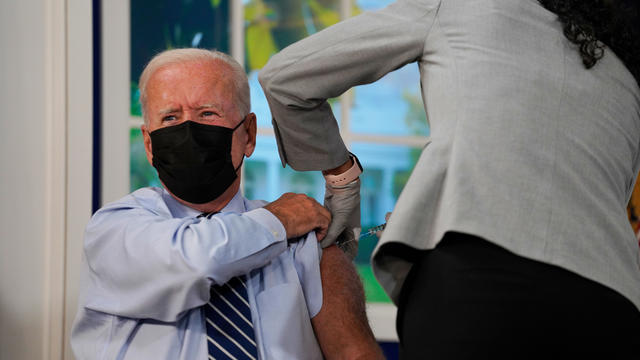
U.S. doubling and accelerating order of Pfizer antiviral pills
President Biden announced the increase and acceleration of the order on Tuesday.
Watch CBS News

President Biden announced the increase and acceleration of the order on Tuesday.
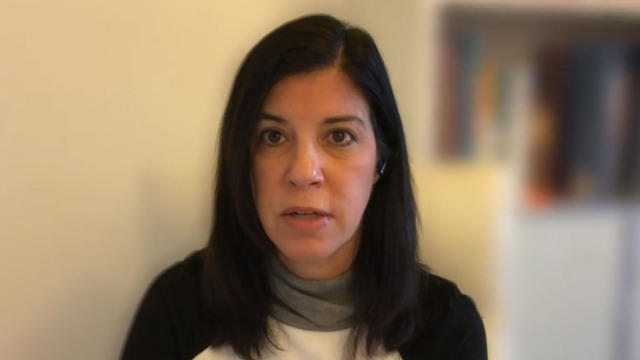
The Food and Drug Administration has authorized booster shots for kids ages 12 to 15 and immunocompromised children ages 5 to 11, in response to the Omicron variant, which is driving a surge of COVID-19 infections in the U.S. Dr. Dyan Hes, founder of Gramercy Pediatrics, joins CBSN to discuss the latest coronavirus headlines.

Despite surging COVID cases, millions of children returned to school after the holidays. Meanwhile on Monday, the FDA announced children as young as 12 can get a booster shot of the Pfizer vaccine, but it comes as more children are being hospitalized. Meg Oliver reports.

As COVID-19 cases surge across the U.S. the FDA has authorized Pfizer booster shots for children ages 12 to 15. CBS News correspondent Meg Oliver reports on how schools are proceeding with their return to class. Then Dr. Rajeev Fernando, who specializes in global infectious diseases, joins CBSN to discuss the latest on the pandemic.
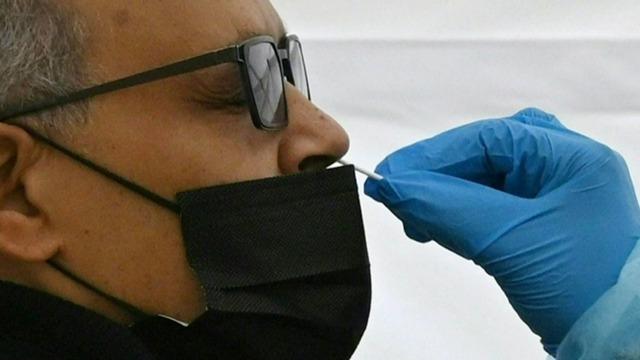
Nearly half a million new COVID-19 cases were recorded in the U.S. on Wednesday. That number from the CDC is the highest single-day tally since the start of the pandemic. CBS News correspondent Nancy Chen reports from New York City. Then Dr. Payal Patel, an infectious disease physician at the University of Michigan, joined CBSN's Elise Preston to discuss the latest on the nation's health crisis.
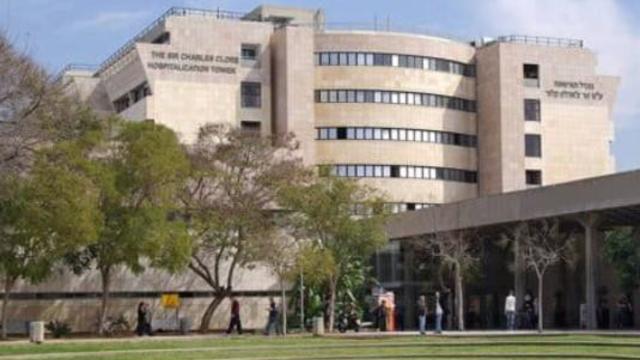
The clinical trial involves 150 volunteers from the staff of a hospital near Tel Aviv who are at least four months removed from their third vaccine shot and have signs of waning antibodies.
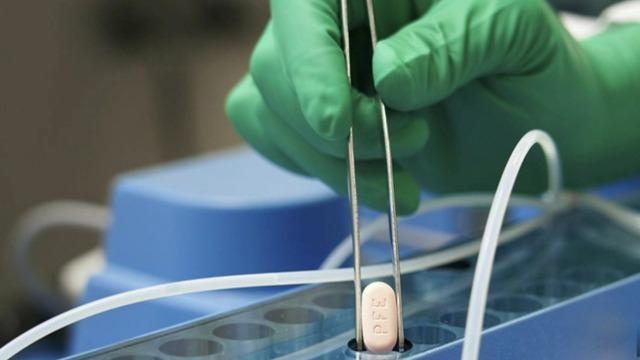
Supplies of antiviral pills from Pfizer initially will be scarce, with some states getting only 100 courses of treatment.

New cases of the Omicron variant are spreading rapidly in the U.S. ahead of the holidays. People are dealing with long lines at testing sites across the nation. At-home testing kits are also short in supply and pharmacies are limiting how many customers can buy. CBS News correspondent Nancy Chen reports from New York City. Then critical care physician Dr. Lakshmana Swamy joins CBSN's Debra Alfarone to discuss the latest on the pandemic.
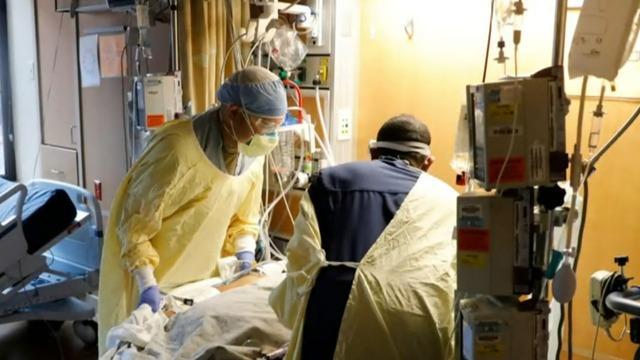
New studies out of South Africa and the U.K. suggest the Omicron variant is less likely to cause hospitalizations -- but it can still be deadly. The FDA also authorized a new antiviral pill to treat COVID-19. CBS News' Nancy Chen reports on the latest, and then Dr. Amesh Adalja, an infectious disease expert at Johns Hopkins University Bloomberg School of Public Health, spoke with Jessi Mitchell on CBSN about the Omicron research and how some patients are experiencing different symptoms than earlier strains.

The FDA has authorized the second antiviral pill to treat COVID-19. CBS News' Michael George reports. Then Dr. Jeremy Faust, emergency physician at Brigham and Women's Hospital at Harvard Medical School, joins CBSN to break down how the drugs work. He also explains why he thinks the CDC should implement "circuit breakers," short-term restrictions on high-risk activities to help curb the spread of the Omicron variant.
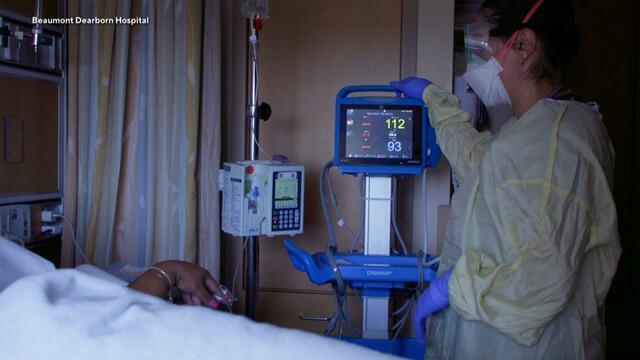
The FDA announced that Pfizer's antiviral pills, called Paxlovid, significantly reduced the risk of hospitalization for those at risk of serious illness from COVID-19. These findings come as hospitals and government officials prepare for a spike in infections. Nancy Chen reports.

The Food and Drug Administration announced Wednesday it has authorized Pfizer's antiviral pill to treat COVID-19 as the new Omicron variant hits all 50 U.S. states. CBS News correspondent Nancy Chen reports on how the new strain is causing disruptions across the country. Then, CBS News correspondent Mark Strassman has the latest on Omicron's impact on travel as tens of millions of Americans hit the road for the holidays. And lastly, Dr. Elizabeth Clayborne, an adjunct assistant professor of emergency medicine at the University of Maryland School of Medicine, joins Elise Preston on CBSN to break down the day's headlines.

The FDA authorized the first pill to treat COVID-19. The milestone comes as U.S. cases, hospitalizations and deaths are all rising, with health officials warning of a possible tsunami of new Omicron cases that could overwhelm hospitals. Nancy Chen has the details.

As COVID-19 cases rise, the Food and Drug Administration has authorized a new tool to help fight the pandemic: Pfizer's COVID-19 pill has been granted emergency use authorization. CBS News' Debra Alfarone reports and Dr. Jerry Abraham, director of vaccine programs at Kedren Health in Los Angeles, joins CBSN's Tanya Rivero to discuss the latest pandemic news and how to stay safe during the holidays.
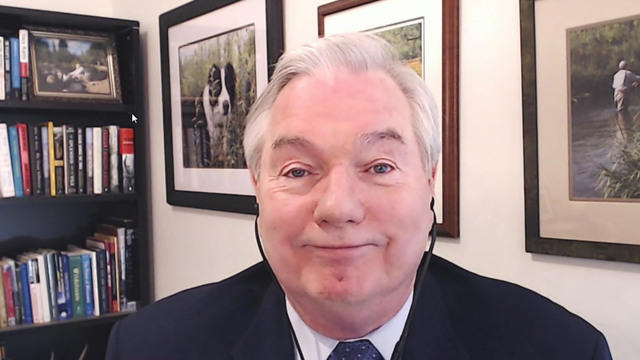
COVID-19 infections are rising across the country, and Dr. Anthony Fauci, White House chief medical adviser, says the Omicron variant could soon be the dominant strain. Moderna has announced that data shows its booster shot increases antibody levels against Omicron. Dr. Michael Osterholm, director of the Center for Infectious Disease Research and Policy at the University Of Minnesota, joins CBSN AM to discuss.

More than 120,000 new COVID-19 cases are being reported every day in the U.S. CBS News' Elise Preston reports on disruptions caused by the Delta and Omicron variants ahead of the holiday season. Then, Dr. Bhavna Lall, a clinical assistant professor at the University of Houston College of Medicine, joins CBSN's Lana Zak to discuss the latest.
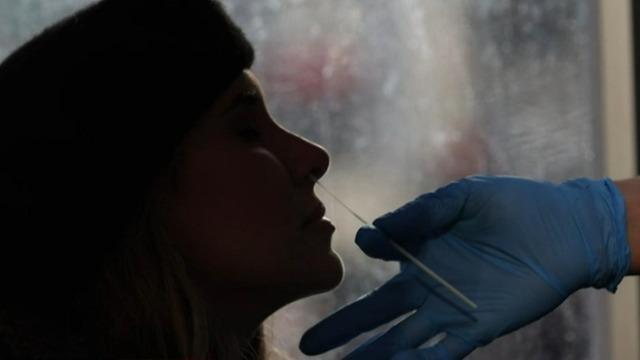
Health officials fear the highly contagious Omicron strain, already detected in 40 states, will become the nation's most dominant coronavirus variant in the coming weeks, and urged Americans to get vaccinated and boosted. Dr. Len Horovitz, a pulmonary specialist at Lenox Hill Hospital in New York City, joins CBSN to discuss the CDC's decision to no longer recommend Johnson and Johnson's one-dose vaccine to unvaccinated Americans and other coronavirus-related news.
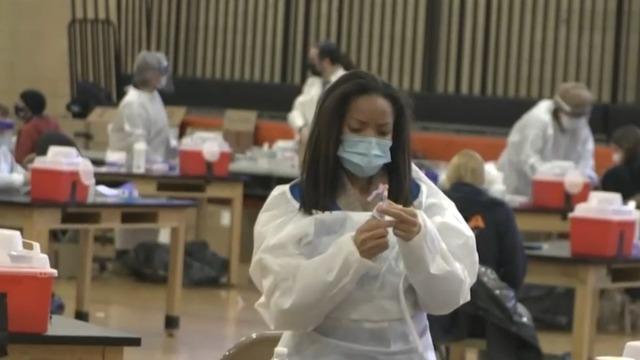
The Centers for Disease Control and Prevention reports that the Omicron variant now accounts for an estimated 3% of COVID-19 cases in the U.S. CBS news correspondent Nikki Battiste has the latest on the new strain. Then, physician Dr. Robert Rock joins Lana Zaka on CBSN to discuss the recent concerns over Omicron and more.
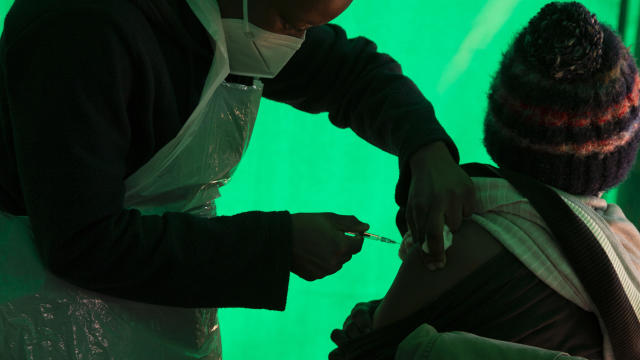
Preliminary analysis of the latest real-world data from South Africa shows that while two shots of the vaccine alone may not stop an infection, it will help avoid serious illness.
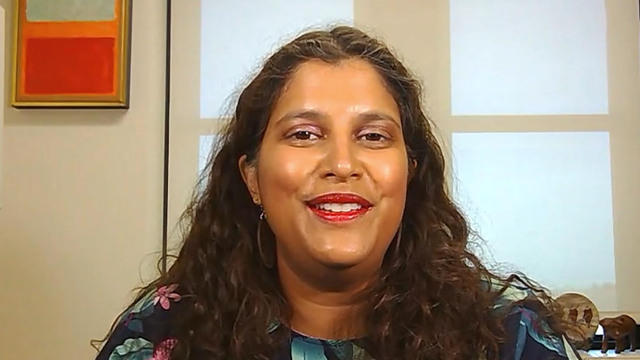
Pfizer has submitted a request for the Food and Drug Administration to provide emergency use authorization for its oral antiviral pill to help fight COVID-19 in high-risk adult patients. Dr. Payal Patel, an infectious disease physician at the University of Michigan, joins CBSN to with more on Pfizer's new pill and the pandemic.
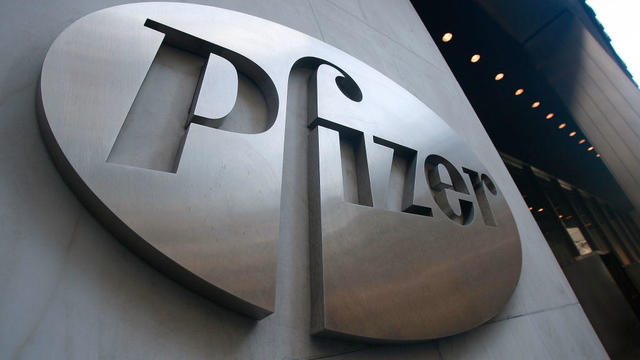
Early data from the company's experiments suggest the pill will be effective against all variants, including Omicron.
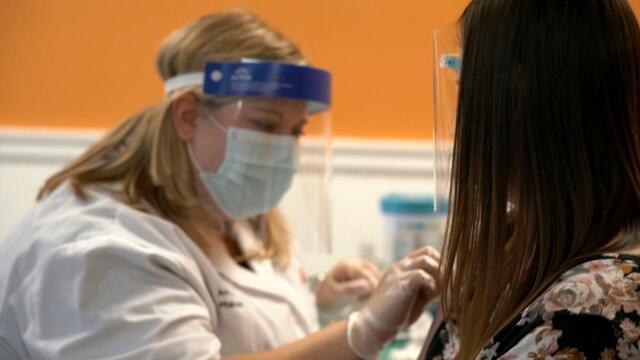
It has been exactly one year since the Food and Drug Administration authorized the Pfizer vaccine — the first of three COVID-19 vaccines now in use in the United States. During that time, more than 480 million shots have been administered. But even with those protections, case numbers have gone up 22% in the past two weeks. That sharp increase is a stark reminder that despite the effectiveness of the vaccines, the virus is still able to spread. Michael George has the latest.

The U.S. is experiencing a COVID-19 resurgence as new cases increased 37% nationwide this week. Some 40% of Americans remain unvaccinated. Michael George reports.

Health officials are identifying more cases of the Omicron variant in the U.S., though the Delta variant continues to be more dominant. Nikki Battiste has the latest.

The FDA has expanded authorization for Pfizer's COVID-19 vaccine booster for teens ages 16 and 17. Over 200 million people in the U.S. are now fully vaccinated, but the Omicron variant is raising concerns. CBS News' Bradley Blackburn reports. Then Dr. Jerry Abraham, director of vaccine programs at Kedren Health in Los Angeles, joins CBSN's Tanya Rivero from a vaccination clinic to discuss the latest.
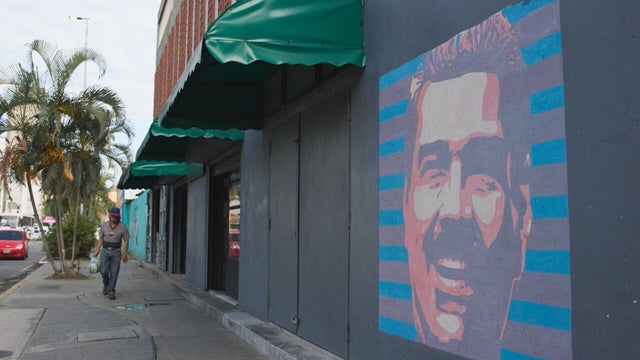
Tensions between the U.S. and Venezuela are ratcheting up, with a showdown between President Trump and Nicolás Maduro putting the two nations on the brink.
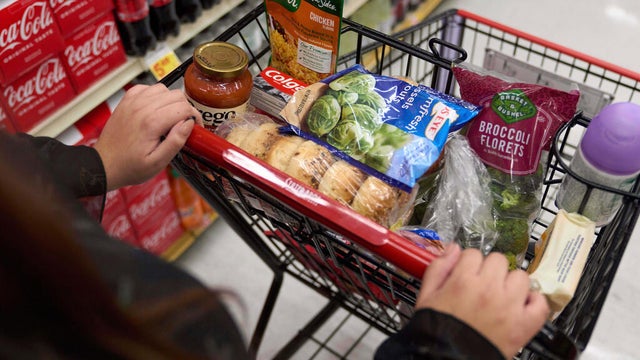
The USDA notice comes after the Trump administration said it would not tap roughly $5 billion in contingency funds to keep benefits through SNAP.
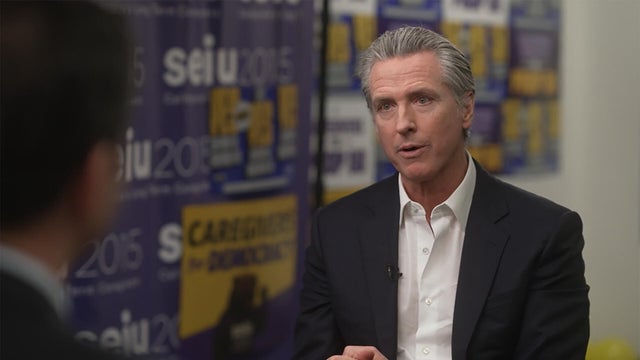
In an exclusive interview, California Gov. Gavin Newsom said that he will consider a presidential campaign after the 2026 midterm elections.
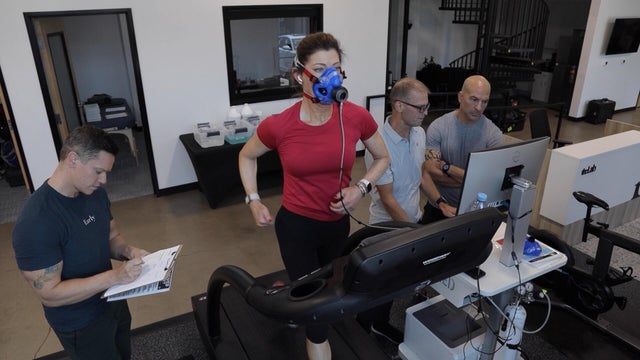
Dr. Peter Attia has declared war on what he calls the marginal decade, the final years of life that are often plagued by sickness and immobility.
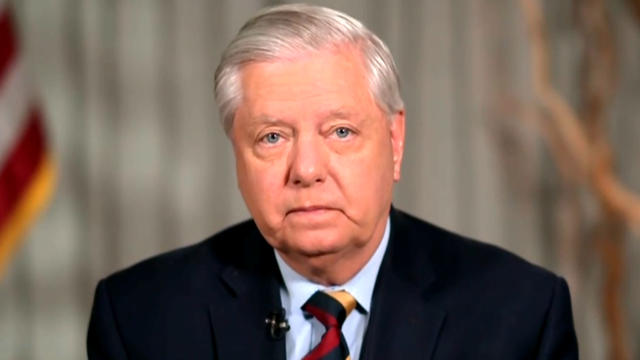
The U.S. has carried out several air strikes on Venezuelan vessels that the Trump administration has accused of carrying drugs and cartel members.

Thieves took less than eight minutes to steal jewels valued at $102 million last Sunday morning from Paris' famous Louvre museum.

Melissa strengthened into a major hurricane and is expected to bring "catastrophic" flash flooding and landslides to Jamaica, Haiti and the Dominican Republic.
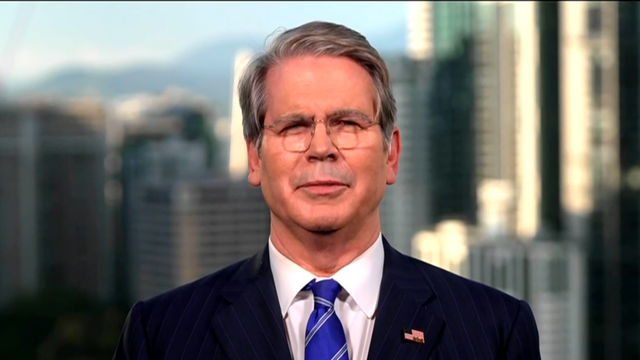
Treasury Secretary Scott Bessent said the TikTok deal announced last month is set to be finalized on Thursday when President Trump meets with Chinese President Xi Jinping.

In an interview aired Sunday on CBS News' "Face the Nation," Sen. Lindsey Graham said land strikes in Venezuela are a "real possibility" amid rising tensions.